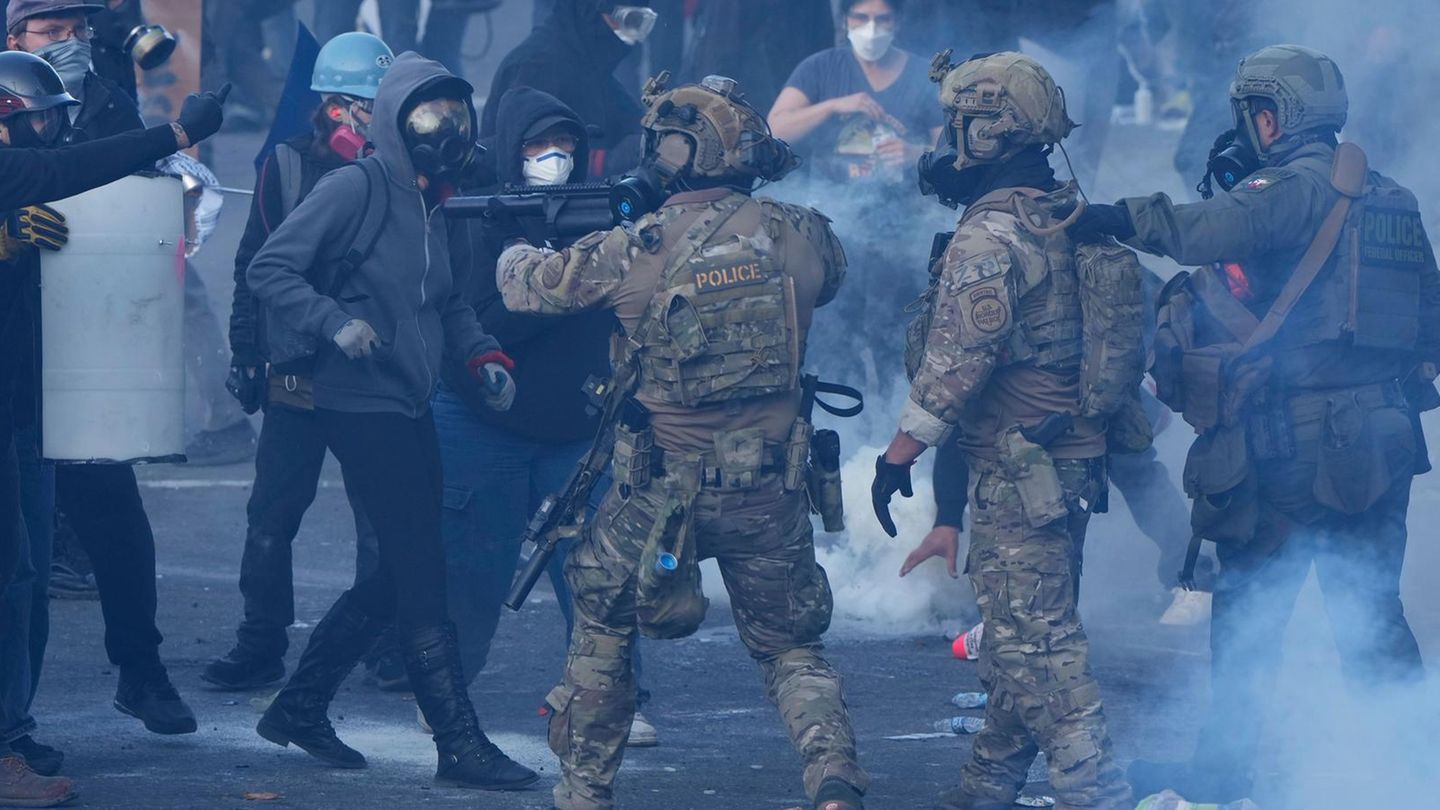The Nord Stream 2 gas pipeline has been a burden on the relationship between Germany and the USA for years. An agreement has now been reached. Ukraine is at the center of this – but criticism comes from Kiev.
The agreement between the USA and Germany in the dispute over the Nord Stream 2 pipeline in the Baltic Sea has met with criticism in Ukraine and Poland.
In a joint communication from their foreign ministries, the two countries warned that the agreement in the conflict over the German-Russian project had “created a political, military and energy-related threat to Ukraine and Central Europe”. At the same time, it increases the potential for Russia to further destabilize the security situation in Europe. The previous proposals were not sufficient “to effectively contain the threats posed by Nord Stream 2”.
In the year-long dispute over the German-Russian Baltic Sea pipeline, Berlin and Washington announced a breakthrough on Wednesday. Both countries published a joint statement pledging support to Ukraine. The almost completed Baltic Sea pipeline is supposed to bring Russian gas to Germany – bypassing the Ukraine, which is dependent on the income from the gas transit. The USA had massively criticized Nord Stream 2 for years and are still against the project, but now want to forego further sanctions.
In the joint statement, Russia is warned against using energy as a political «weapon» or committing further aggressive acts against Ukraine. Otherwise Germany will act at national level and push for effective measures including sanctions in the European Union. The aim would then be to limit Russian capacities for exports to Europe in the energy sector, including gas – or to take effective measures in other economically relevant areas.
Among other things, Germany undertakes to use all possible means of influencing the extension of Ukraine’s gas transit agreement with Russia, which expires in 2024, by up to ten years. A special envoy should be appointed for this purpose. The negotiations should start as soon as possible, but no later than September 1st. The United States is fully committed to these efforts.
Germany also promises technical support in connecting the Ukrainian power grid to the European power grid. Ukraine is to be supported in becoming less dependent on Russian gas. Germany wants to set up and manage a “Green Fund” to promote the energy transition, energy efficiency and energy security in Ukraine.
Foreign Minister Heiko Maas (SPD) was relieved to have found a “constructive solution” with the USA. “As a transatlantic partner, we are firmly on the side of Ukraine,” said Maas. The German government’s transatlantic coordinator, Peter Beyer, said on Wednesday evening (local time) in Washington: “It’s a good day for transatlantic relations, for German-American friendship.”
The breakthrough at the greatest point of conflict should also help to facilitate the desired restart in German-American relations after the difficult years under the former US President Donald Trump. “The agreement also shows that Germany and the USA have moved closer together again,” said Federal Economics Minister Peter Altmaier (CDU).
Praise came from Moscow: “This agreement gives us the opportunity to complete the construction of Nord Stream 2 in peace and quiet and to fully commence operations,” said Vladimir Jabarow from the Federation Council – the upper house of the Russian parliament – of the Interfax agency. At the same time, he set conditions for a possible extension of the transit agreement: Ukraine should prove itself as a “constructive partner”. Kremlin spokesman Dmitry Peskov told the Ria Novosti state agency that negotiations on a new transit agreement should only be of a purely “commercial character”.
As the operating company explained in mid-July, the Baltic Sea pipeline should be completed in a few weeks. “We assume that the construction work will be finished at the end of August,” said the CEO of Nord Stream 2 AG, Matthias Warnig, the “Handelsblatt”. 98 percent of the pipeline has now been completed. The aim is to put the natural gas pipeline into operation this year.
US President Joe Biden and Chancellor Angela Merkel summoned a new start in German-American relations in Washington last Thursday, after difficult years under Biden’s predecessor Donald Trump. In the USA there has been cross-party resistance to Nord Stream 2 for years. The agreement is therefore likely to meet with strong resistance in Congress. There, many Republicans reject the project and demand sanctions, as do some of Biden’s Democrats.
Critics see the pipeline as a geopolitical project by Russia that threatens Europe’s energy security. They also complain that the pipeline could harm Ukraine. Kiev is dependent on billions in revenue from Russian gas transit. Proponents of the pipeline, on the other hand, accuse the USA of only wanting to sell their own, more expensive gas in Europe.
Jane Stock is a technology author, who has written for 24 Hours World. She writes about the latest in technology news and trends, and is always on the lookout for new and innovative ways to improve his audience’s experience.




